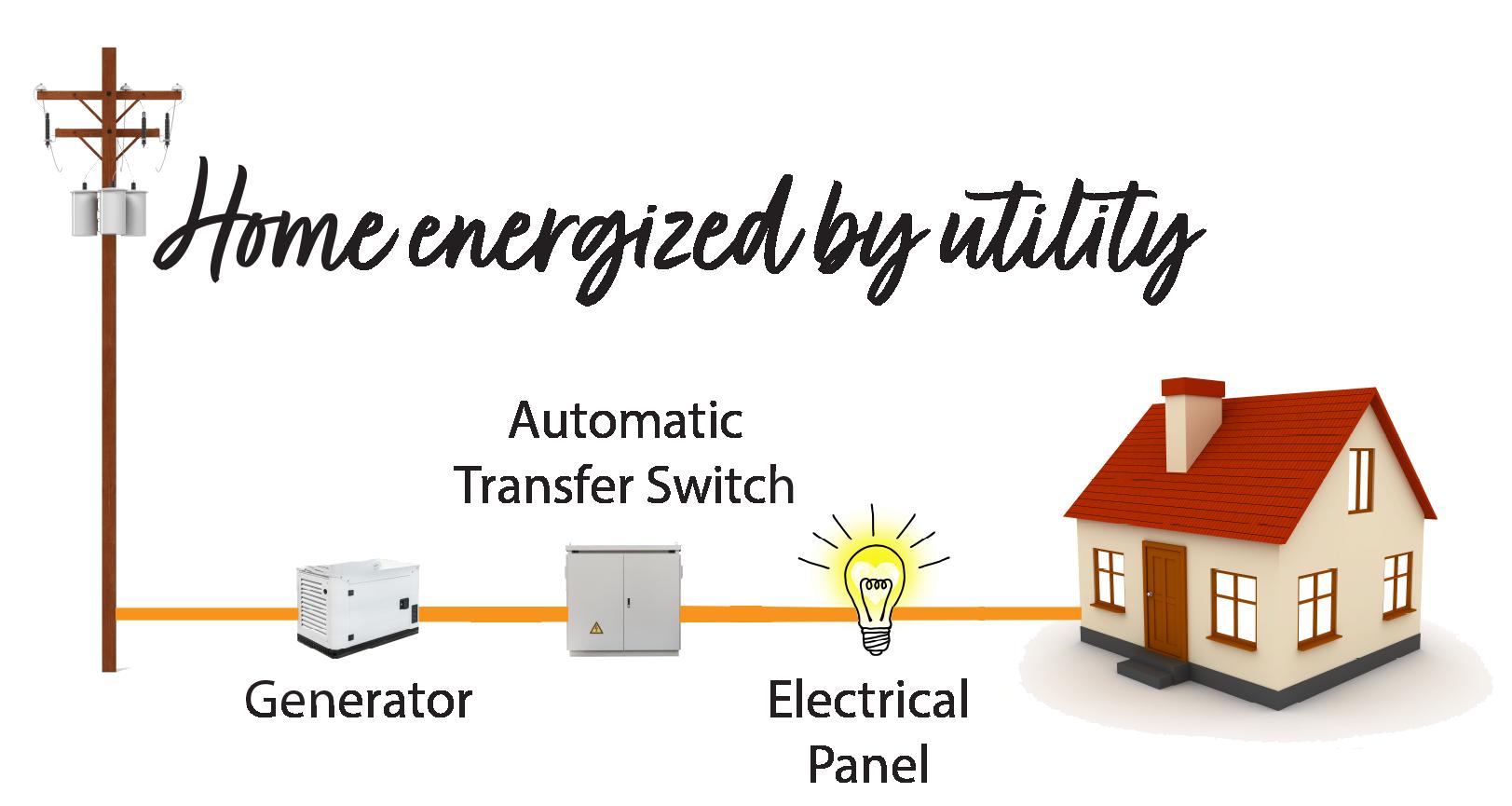
2 minute read
Using an Electric Generator
By Gary Glover, Vice President & Chief Operating Officer – Electric Operations
A generator can help keep your family comfortable if/when winter storms cause unexpected power outages. As with everything electricity related, there are important safety considerations for using electric generators.
Prevent Backfeed
You need to prevent electricity from traveling back through your home to the power lines—a dangerous event known as “backfeeding the lines.” This is very dangerous for anyone near power lines, particularly our line crews working to safely restore your service.
There are two important ways to prevent backfeed.
1. Install a transfer switch. A transfer switch prevents your household wiring, or selected circuits, from connecting to the power grid and the generator at the same time. It also protects your generator from damage if we restore power when it is connected. Be sure to have a qualified, licensed electrician install the transfer switch for you.
2. Do not plug your generator directly into your homes wiring or circuit breaker panel. If you plug a generator directly into a wall outlet, the wiring in your home is not protected by a circuit breaker or fuse in your power panel. This can lead to the outlet overheating and possibly starting a fire.
Additional Generator Safety Tips
1. Be sure to follow the manufacturers’ directions for installation and operation.
2. To prevent electric shock, make sure your generator is properly grounded. The operation manual should supply correct grounding procedures.
3. Operate electric generators or other fuel-powered machines outside where deadly carbon monoxide fumes cannot enter the home.
4. Use the generator only in a well-ventilated and dry area found away from air intakes to the house. Do not use a generator in an attached garage.
5. Do not overload the generator by running more appliances and equipment than the generator can handle. The operating instructions should have an output rating for the generator.
6. Individual appliances should be plugged directly into the receptacle outlet of the generator using appropriately sized extension cords to carry the electric load. Make sure the cords are rated for outdoor use, have a grounded, three-pronged plug, and are in good condition.
7. Do not run extension cords under rugs.
8. Never plug a generator into a household outlet.
9. Do not refuel a generator while it is running.
10. Only store fuel outside of living areas and away from heat sources like water heater pilot lights.
11. Turn off all equipment powered by the generator before shutting it down.
12. Keep children and pets away from generators.
These safety tips are critical to help you avoid unnecessary danger when using an electric generator.










